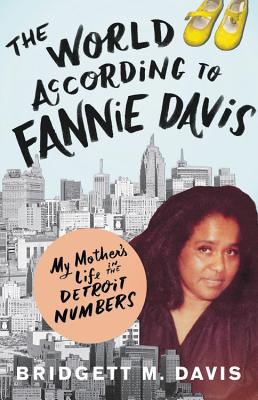Book Review: The World According to Fannie Davis: My Mother’s Life in the Detroit Numbers
Reviewed by:
Tony LindsayThe World According to Fannie Davis is the story of a Black woman who became a numbers’ banker, which was a miraculous accomplishment because the numbers industry was male dominated. The book is the story of a spiritual woman who believed God helps those who helped themselves. The woman, who family and friends thought of as “lucky,” was Bridgett M. Davis’ mother, Fannie Davis.
Fannie Davis was a true humanitarian, a lover of her community, and a consistent provider for those she cared about. In the book, her life represents a profession that is seldom given credit for the advancement it caused within the Black community. Bridgett M. Davis uses Detroit, MI. to illustrate the positive impact numbers entrepreneurs had on the community.
Davis explains how the numbers bankers assisted in keeping the Black dollar within the community by circulating funds to other businesses, providing start up capital, and creating an independence away from the often hostile and predatory banking institutions. This financial self-reliance led to pride within Detroit’s Black community; this liberated stance is exemplified in Davis’ writing about her mother.
The reader meets a woman who believed “that the only way she’d have more than what this country intended for her was to work for herself in a business she controlled that depended on a black clientele” (56). With a hundred dollar loan from her brother Fannie Davis built an illegal business that supported her family and others in her community for over three decades.
Through a memoirist style Bridgett M. Davis uses her family history, the history of Detroit numbers, civil rights conflicts, Black bourgeoisie and Black working class conflict, divorce, family lost, sickness, and grief to give the reader an intimate look at her mother’s life in the Detroit numbers. Davis’ span of events reaches back to Denmark Vesey winning $1,500 in 1799 lottery and purchasing his freedom — to modern day legislation and state lotteries destroying a traditional source of revenue for Black communities. Davis offers the reader a different perspective on what was historically thought of as an illegal enterprise. From the history she offers, the reader understands the pride and self-reliance that the Black owned industry produced.

